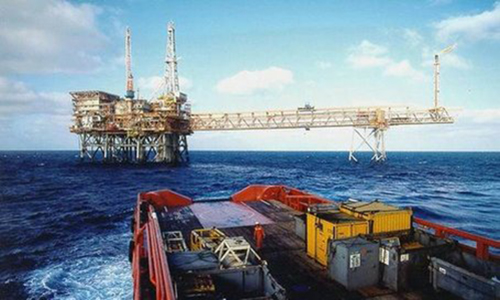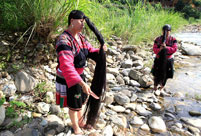


After Australia was taken to the Permanent Court of Arbitration (PCA), Australian Foreign Minister Julie Bishop and Attorney General George Brandis issued a joint declaration on Aug. 29. They denied all spying allegations and said that East Timor should respect the existing treaties to divide underseas resources.
However, just one month ago, China declared its intention to oppose and reject any claim or action based on PCA decisions, and the U.S, Japan and Australia emphatically urged China to obey the "valid arbitration" on the South China Sea. Bishop even said that China's international reputation and ambitions of becoming a leading power would be harmed if its leadership ignored the results of the arbitration.
The maritime delimitation between Australia and East Timor has existed for decades. In 1972, Australia and Indonesia delimited the maritime border in the Timor Sea. However, since East Timor was a Portuguese colony, the agreement required but failed to obtain Portugal's approval. After declaring independence in 2002, East Timor rejected the bilateral agreements made by Australia and Indonesia in 1989 and 1997.
Before East Timor declared independence, Australia issued an exclusive declaration refusing to accept settlement procedures on disputes of maritime delimitation. This refusal made reference to the United Nations Convention on the Law of the Sea (UNCLOS), which Australia denounced in the same year. On the day of East Timor's independence, Australia and East Timor signed the Timor Sea Treaty, establishing a joint petroleum development area. In 2006, under pressure from all sides, Australia and Timor-Leste signed a new treaty equally dividing underseas resources.
East Timor now holds that, according to the medium line principle, it can rightfully claim most parts of the oil-gas zone. The country, therefore, attempted to resolve the dispute through judicial procedure. So far, however, Australia has thwarted those attempts.
 World's fastest bullet train to start operating next month
World's fastest bullet train to start operating next month Huangluo: China's 'long hair village'
Huangluo: China's 'long hair village' Spectacular bridge with one of the tallest piers in the world
Spectacular bridge with one of the tallest piers in the world Magnificent view of Hukou Waterfall
Magnificent view of Hukou Waterfall A glimpse of Stride 2016 Zhurihe B military drill
A glimpse of Stride 2016 Zhurihe B military drill US Navy chief tours Liaoning aircraft carrier
US Navy chief tours Liaoning aircraft carrier Chinese American woman wins Miss Michigan
Chinese American woman wins Miss Michigan Centenarian couple takes first wedding photos
Centenarian couple takes first wedding photos Traditional Tibetan costumes presented during fashion show
Traditional Tibetan costumes presented during fashion show Top 10 livable Chinese cities
Top 10 livable Chinese cities Top 20 hottest women in the world in 2014
Top 20 hottest women in the world in 2014 Top 10 hardest languages to learn
Top 10 hardest languages to learn China’s Top 10 Unique Bridges, Highways and Roads
China’s Top 10 Unique Bridges, Highways and Roads Hangzhou ready for a safe and secure G20 summit
Hangzhou ready for a safe and secure G20 summit
 With changing views and fast-paced lifestyles, youth in China no longer think that marriage is a necessity
With changing views and fast-paced lifestyles, youth in China no longer think that marriage is a necessity
 Wealthy Chinese patients going abroad for latest drugs, better service
Wealthy Chinese patients going abroad for latest drugs, better service
 Embassy attack must be properly handled
Embassy attack must be properly handledDay|Week